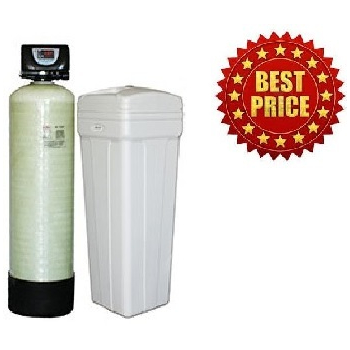
Water is a critical part of daily life, but the quality of that water can vary depending on where you live. In many households, “hard water” creates problems such as limescale buildup, reduced soap efficiency, and shorter appliance lifespans. The solution for these issues is often a water softener. However, with different types and models available, choosing the right water αποσκληρυντες νερου softener can feel overwhelming. To make an informed decision, it’s important to understand your household’s water needs and the options available.
Step 1: Test Your Water Hardness
The first step in selecting a water softener is determining how hard your water is. Water hardness is measured in grains per gallon (gpg) or milligrams per liter (mg/L). You can request a water quality report from your municipality or use a simple home test kit. The higher the mineral content, the more powerful your water softener will need to be. Knowing your exact water hardness ensures you choose a system that effectively addresses your specific problem.
Step 2: Assess Household Size and Water Usage
Your family’s size and daily water consumption directly impact the type and capacity of softener you need. A single person in a small home requires a much smaller system than a large family that uses hundreds of gallons of water daily. If the system is too small, it will regenerate too frequently, wasting salt and water. If it’s too large, you may end up spending more than necessary. Ideally, your softener should be sized to handle your household’s water usage efficiently.
Step 3: Understand the Different Types of Water Softeners
There are several types of water softeners available, each with unique advantages:
- Salt-Based Ion Exchange Softeners – The most common type, these systems use resin beads and salt to replace calcium and magnesium ions with sodium or potassium. They are highly effective but require regular salt refills.
- Salt-Free Water Conditioners – These do not remove minerals but instead change their structure so they don’t stick to surfaces. They are low-maintenance and environmentally friendly but may not be as effective for very hard water.
- Dual-Tank Softeners – Designed for larger households, these systems feature two tanks, ensuring continuous soft water supply even during regeneration.
- Magnetic or Electronic Descalers – These systems use magnets or electrical currents to alter the behavior of minerals. They are easy to install and require little maintenance but generally provide less noticeable results compared to traditional softeners.
Step 4: Consider Maintenance and Operating Costs
Different softeners come with varying levels of upkeep. Traditional salt-based models require periodic salt refills, while dual-tank systems use more water during regeneration. Salt-free systems, on the other hand, require minimal maintenance but may cost more upfront. Be sure to factor in long-term costs, including energy use, water consumption, and replacement parts.
Step 5: Think About Installation and Space
Before purchasing, consider where the softener will be installed. Most units require proximity to the main water line, a power source, and a drain. If you live in a smaller home or apartment, a compact model may be the best choice. For larger households with plenty of space, a full-sized or dual-tank system might be ideal. Professional installation is often recommended to ensure proper setup and efficiency.
Step 6: Look for Smart Features
Modern water softeners often come with smart features, such as digital controls, water usage tracking, and efficiency modes that adjust regeneration cycles automatically. While not necessary, these features can make managing your system more convenient and cost-effective.
Final Thoughts
Choosing the right water softener involves more than simply buying the first unit you see. By testing your water, assessing your household’s needs, and weighing the pros and cons of each type, you can select a system that provides reliable performance and long-term benefits. A well-chosen water softener not only improves the quality of your water but also protects your plumbing, extends appliance life, and enhances everyday comfort.